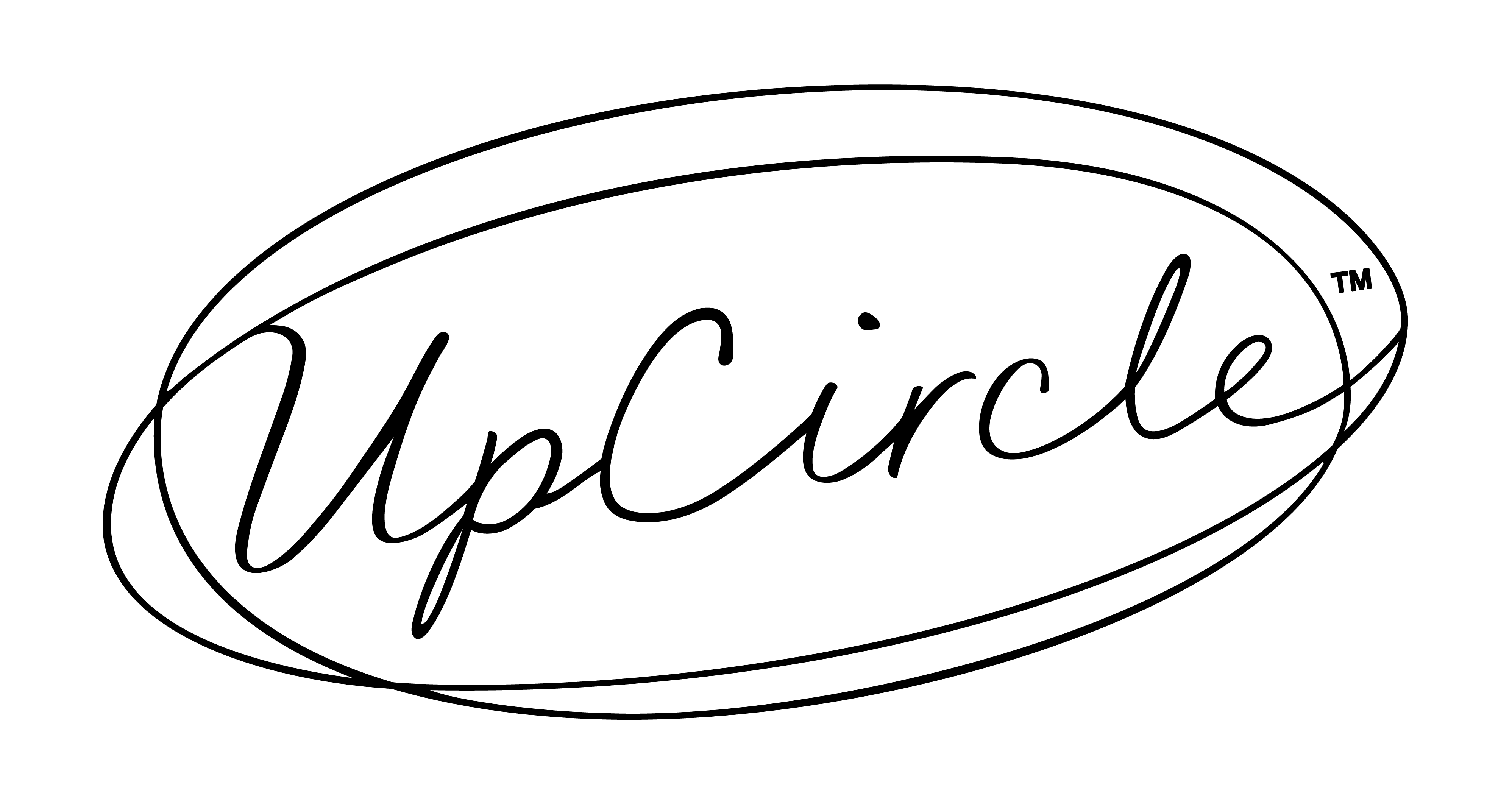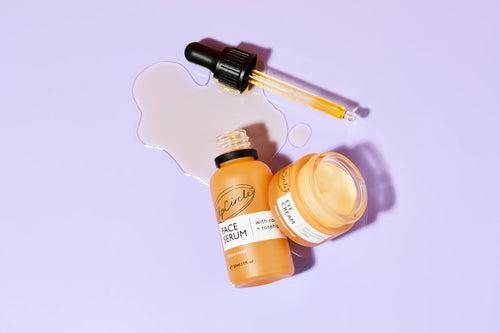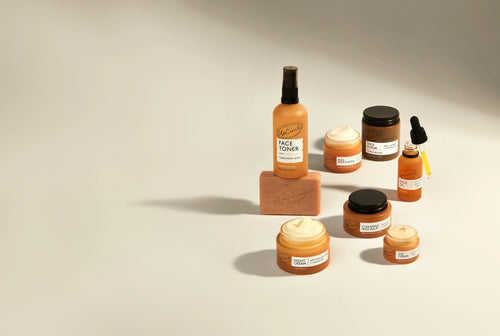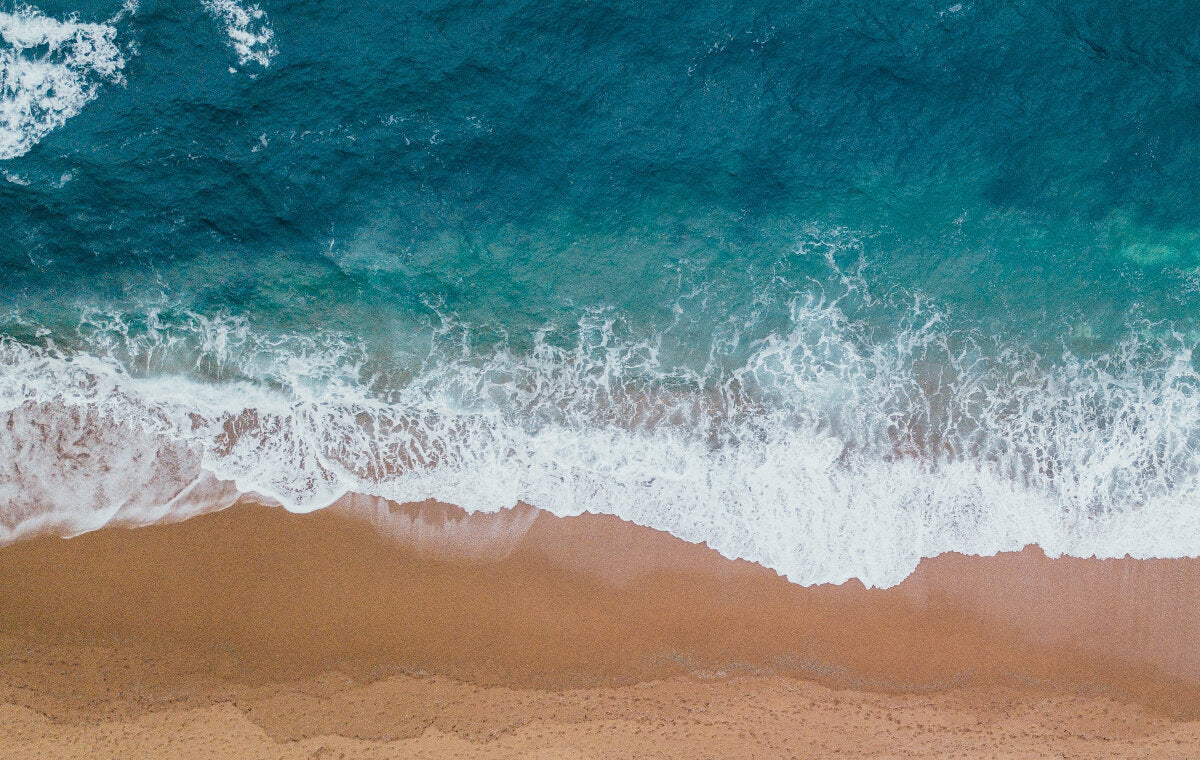Increasingly, it is becoming apparent that we need to be aware of the impact of cosmetic and skincare products on ocean ecosystems. More and more we are hearing stories about damage to coral reefs, hormone disruption in fish, and plastic choking marine life.
A study that’s currently being researched is showing just how harmful many sunscreens are to marine life, causing problems such as contamination of dolphin young to damaging the DNA of coral and causing defects in mussels. The body of evidence that we need to take greater care with choosing our skincare is mounting.
Ocean-friendly skincare avoids the use of skincare ingredients that end up causing harm in our oceans and uses only natural ingredients that are not harmful to marine life. Ocean-friendly skincare is ethical.
Why is ocean-friendly skincare important?
When you wash your skin, or use skincare products in the shower or bath, the skincare ingredients literally get washed down the drain. These ingredients ultimately end up in our waterways, often easily getting past the water treatment that happens at wastewater plants.
These ingredients, particularly in the growing amounts they’ve been produced in recent decades, can be toxic to the environment. This includes marine life, such as coral, if they end up in the ocean as many do.
In addition, it’s not just the ingredients that come into play here. The packaging is also important. 11 million tonnes of plastic find their way into our oceans every year, and this too is harmful to marine life. It’s important to consider the packaging of skincare before determining if it is truly ocean-friendly.
Ocean-friendly skincare avoids certain ingredients known to cause harm to marine life and is packaged in ethical sustainable packaging.
Skincare ingredients that harm marine life
We are increasingly learning about skincare ingredients that aren’t ocean-friendly. Here are the main culprits:
Oxybenzone and Octinoxate
Banned by Hawaii and other places, oxybenzone and octinoxate are common sunscreen ingredients that have been found to be particularly harmful to coral reefs and other marine life. It prevents the growth of blue-green algae that’s important to the health of coral. They literally wash off the skin into the ocean from swimmers.
One study revealed that, before Hawaii’s ban, the levels of oxybezone in Hawaii’s waters was 12 times higher than elsewhere.
The problem with this was first revealed by scientists at Ben-Gurion University in Israel. They demonstrated that oxybenzone causes damage to DNA as well as endocrine disruption in coral that causes it to die. This is a huge problem and believed to be one of the main reasons for coral reef death globally, which is truly shocking. These chemicals are also sometimes found in soaps.
Alternatives: Choosing ocean-friendly mineral-based sunscreen is important. Using less sunscreen can also help by covering up with UV-protective fabrics and staying in the shade where possible.
Parabens
Parabens are problematic in many ways, and adding to their list of concerns is that they aren’t ocean-friendly. Parabens are put in skincare as preservatives. They work as preservatives because they limit the growth of bacteria, so it’s easy to see how they can easily disrupt ecosystems that rely on a fine balance.
Parabens too have been linked to the death of coral reefs, and have also been found in marine mammals such as otters and dolphins, causing harm, particularly in terms of reproduction.
Alternatives: Choose natural skincare which is paraben-free. It’s better for you and the environment.
Triclosan
Triclosan is found in all sorts of products from shampoo to toothpaste and from face wash to shower gel. Triclosan is included in such a broad range of products because it too is a preservative, serving as an antifungal agent. It’s so powerful at killing microbes that it has long been used in hospital-grade cleaners.
Triclosan inhibits the growth of blue-green algae, essential for coral health. It has also been shown to kill fish and crustaceans.
Alternatives: You should have a healthy skin microbiome and you don’t actually need anything to kill this off! It’s therefore safe to choose moisturizers and lotions which don’t include triclosan.
Silicone
Many cosmetics and skincare products that are silky smooth may contain silicone. This is a synthetic chemical that can accumulate in aquatic animals, working its way up the food chain as larger animals consume smaller ones. It’s also been shown to be fatal for plants.
Alternatives: Scan the ingredients lists of your skincare products and choose ones which don’t contain silicone. It’s commonly found in things like foundation and moisturizers. Choose a silicone-free moisturizer such as our Face Moisturizer with Argan Powder.
Artificial fragrance
Artificial fragrances used in skincare have been shown to cause harm to marine life.
Alternatives: With so many natural fragrances which aren’t harmful to the environment, it’s easy to avoid artificial fragrances. From fruits to flowers to herbs, there are so many natural fragrances that can be used. You could even opt for completely fragrance-free options, like our Night Cream with Hyaluronic Acid & Niacinamide.
Sulfates
Sodium Lauryl Sulfate (SLS) is used to make things like shower gel and toothpaste foam. It’s not necessary and can be toxic to ocean organisms. We explain more in our article on SLS-free skincare.
Alternatives: Choose SLS free toothpaste and choose soaps over shower gels.
Microplastics
In terms of harm to marine ecosystems, microplastics (and microbeads) are a huge problem. Microplastics are contained in all sorts of products, including clothing. However, in skincare, we often see them used in exfoliators or scrubs. Microbeads are not biodegradable and they are so small that they travel straight through water treatment and head to our oceans. They are then ingested by marine animals.
These leach endocrine disruptors into fish and other animals. Again, this affects the whole food chain.
Alternatives: Natural scrubs are the solution. We use repurposed coffee grounds in our scrubs which we’ve found to be more effective than microbeads, whilst also being harmless to the environment.
More and more evidence is mounting to show just how many skincare ingredients are problematic for marine life and ecosystems. Choosing ocean-friendly skincare generally means choosing natural ingredients. Chosen with care, even when these ingredients are ‘washed away’ into waterways, they are not harmful to aquatic life.







